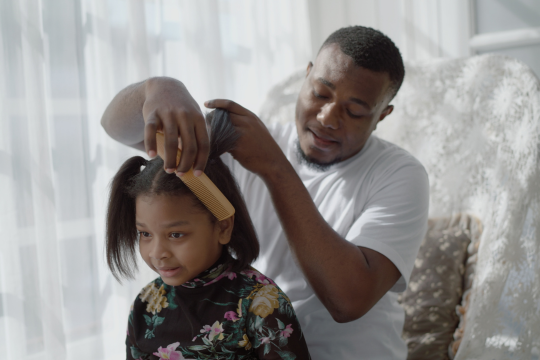Foster Parents Needed in Massachusetts!
On any given day in Massachusetts, approximately 8,000+ children are in foster care. But with only about 5,500 licensed foster parents across the state, the need for more foster parents is urgent.
As the largest nonprofit provider of comprehensive foster care in the state, we believe Massachusetts can (and should) be a leader in ensuring every child has a safe, loving home.
You can make a difference. Check out our Foster FAQs to learn more about becoming a foster parent in Massachusetts, click here to connect with us or receive more information via email, or simply help spread the word about the urgent need for foster parents statewide!
Connect with HopeWell
Media Inquiries
Please email Torrie Mekos, Director of Communications, at tmekos@hopewellinc.org.
Contact Us Directly
Email info@hopewellinc.org or call 617-629-2710 and select option 3. A member of our team will follow up with you!
Get More Info on Becoming a Foster Parent
"*" indicates required fields
By submitting this form, you are consenting to receive emails from HopeWell. You can revoke this consent at any time.
Foster FAQs
Why is there a shortage of foster parents? How many kids need foster homes?
The number of foster parents has been declining across Massachusetts for years.
This problem has been building for decades in Massachusetts. There is a lack of widespread awareness and attention. And even for people who are interested in becoming a foster parent, it can be a difficult decision. The COVID pandemic further exacerbated the declining number of foster parents due to stress, caution around spreading the virus, and reluctancy to take in children during uncertain times.
HopeWell is the largest nonprofit provider of foster care in Massachusetts — yet over the last 20 years, we have experienced a 68 percent decrease in the number of licensed foster homes!
Foster care providers and the media have been ringing the alarm bells. News stories like describe children and teens having to stay in hospitals, emergency apartments, and even state offices because there are no available foster homes for them to go to.
The simple answer is we need as many new foster parents as possible across Massachusetts!

0 +
Children & teens in foster care each year
0 +
Licensed foster parents
More than 8,000 children and teens experience foster care each year in Massachusetts. But there are currently only about 5,500 licensed foster parents statewide.
Why do children enter foster care in the first place?
Children do not enter foster care because they are bad or dangerous.
Children enter foster care because their parents are unable to take care of them at that point in time.
This can be for a variety of reasons, such as:
- Substantiated reports of abuse — including physical, emotional, or sexual abuse.
- Substantiated claims of neglect — when a parent is not fulfilling a child’s basic needs, such as food or a safe living environment. This can also include medical neglect.
- Parent substance abuse.
- Parent illness that results in them being unable to care for their child.
- Parent incarceration.
- Abandonment.
- Death of the parent.
Here at HopeWell, we also work to ensure fewer kids enter foster care in the first place. Our Family Together program provides intensive in-home supports to families who are involved with the Massachusetts Department of Children and Families (DCF) and have lost custody of their children or are at risk of having their children removed from their home. Our goal is to help families stay safely together.

What are the requirements to become a foster parent in Massachusetts?
Adults from all walks of life can be amazing foster parents!
What HopeWell’s diverse and amazing community of foster parents all have in common is a desire to provide care to children in need of a safe place.
For example, you can:
- Be older or younger — our youngest foster parent is 26 and our oldest is 87!
- Be married, divorced, widowed, in a relationship, or completely single.
- Be LGBTQ+.
- Already have your own kids or not.
- Live in a city or a small town.
- Own a house or rent an apartment.
- Speak a language other than English at home.
- Have pets or not.
- Follow any religion or no religion.
- Have a job where you work outside of the home, a work-from-home job, or you can be a stay-at-home parent.
- Have experienced foster care yourself when you were younger.
In HopeWell’s six decades of experience providing foster care services, we have found certain characteristics that help a foster parent be successful:
- A willingness to open your heart and your home.
- An environment that is safe, stable, and loving.
- An understanding that every child is unique and comes with their own background, interests, and abilities.
- An open mind about learning new parenting skills.
- Comfort navigating some uncertainty.
- A desire to work as part of a child’s support team.
- And a sense of humor helps too!

There are standard eligibility requirements that all foster parents in Massachusetts must meet.
For example:
- You must be at least 18-years-old.
- You must have a stable source of income.
- Whether you rent or own your home, the environment must be clean, safe, and free of obvious hazards. For example:
- Sufficient space.
- Adequate lighting, ventilation, water, plumbing, heat, and electricity.
- Functioning smoke detectors.
- A fridge and stove in safe, working condition.
- If you have firearms, they must be registered and licensed in accordance with state law and stored securely.
- If you own dogs, they must be up-to-date on their immunizations and rabies shots, and must be licensed in accordance with your local requirements.
- You must have sufficient time and availability. For example, any children you foster, cannot be put into work-related childcare (such as daycare, preschool, or with a nanny) for more than 50 hours per week, or more than 25 hours per week if they are in first grade or older.
- To help ensure the safety of the children in your care, you must complete a criminal background check.
What is the process for becoming a foster parent in Massachusetts? How long does it take?
The process for becoming a foster parent in Massachusetts can take as little as three months to complete.
Step 1: Connect with us
Whether you’re just starting to consider becoming a foster parent and are wanting to learn more, or you’re feeling ready to start the process, we encourage you to connect with us using one of these options:
- Sign up to receive more information via email.
- Email us at info@hopewellinc.org.
- Call us at 617-629-2710 and select option 3. A member of our team will call you back. You can also call the HopeWell office that is closest to you.
We are happy to answer any questions you have with full candor and honesty.
Step 2: Fill out an application
- A member of our team will fill out an inquiry form over the phone with you. This form is used for initial screening — it includes some basic information about you, your home environment, and the people who live in your home.
- After this initial screening, you will be sent a more in-depth application to fill out.
Step 3: Pass a home safety check
The next step is a physical standards check of your home to ensure it is clean, safe, and free of obvious hazards. A HopeWell team member will visit your home for 1-1.5 hours. We will review the checklist with you prior to the visit, so you know exactly what to expect. The types of conditions we will check for include:
- Sufficient space.
- Adequate lighting, ventilation, water, plumbing, heat, and electricity.
- Functioning smoke detectors.
- A fridge and stove in safe, working condition.
- If firearms are present in the home, they must be registered in accordance with state law and stored securely.
Step 4: Attend training
Next, you will complete the Massachusetts Approach to Partnership in Parenting (MAPP) training program. This training is required by the state.
- MAPP training is 30 hours total. Sessions are facilitated by HopeWell staff, and the method is comfortable and conversational.
- Each HopeWell office (except for Dedham) offers MAPP training multiple times throughout the year. If scheduling is a challenge, we’ll connect you to other organizations to complete the training portion of the process, if needed.
- The purpose of MAPP training is to help you:
- Understand the distinct challenges youth experiencing foster care face.
- Navigate the process of becoming (and being) a foster parent.
- Plan for the changes to your life and your family’s lives.
Step 5: Visit with a social worker
Around the time you are participating in MAPP training:
- You will submit names and contact information for us to do a reference check.
- You will also need to complete a criminal background check and fingerprinting (for anyone 15 or older in your home). If you encounter barriers, some less serious offenses may be allowed with discretionary approval.
- You may be asked to submit other paperwork, such as: medical reports, school records, documentation of pet immunizations, and/or documents related to any support services that your family utilizes.
- You will meet with a HopeWell social worker 3-5 times. They will:
- Answer any questions you or members of your household may have and discuss various parenting topics.
- Prepare a home study document that details your family’s strengths, any challenges or limitations, and if there are certain characteristics of a child that might make you a good fit for one another.
Step 6: You are a licensed foster parent!
Once approved, you are officially a licensed foster parent and children can be placed in your home!
Why foster with HopeWell? What supports do foster parents receive?
Simply put, at HopeWell, we show up for families.
HopeWell is the largest nonprofit provider of comprehensive foster care in Massachusetts and we have 60 years of experience guiding us. We provide foster parents with a range of supports, including professional guidance, emergency response, peer connections, and financial assistance.
Our foster parents often highlight that what stands out to them the most about fostering with HopeWell is that we truly support them — from the “small stuff,” like simply answering the phone and hosting fun days out at Six Flags, to the “big stuff,” like problem-solving and building a shared community.
PROFESSIONAL SUPPORT FROM OUR AMAZING STAFF
Our staff constantly coordinate with one another, so you will have multiple thought-partners to help guide your family’s journey.
- As a HopeWell foster parent, you will have a family resource worker who will provide a home visit one time per month (more if needed). Their goal is to help you navigate state regulations, rules, and policies to keep you in compliance.
- You will also have a social worker, who will work with you and your family on a weekly basis (more if needed). For about one hour each week, they will meet with a combination of you and the child you are fostering. They will also help by making referrals to any additional supports or resources that are needed
EMERGENCY SUPPORT
In addition to routine support, we provide 24/7 on-call emergency support — any time, day or night. We want you to succeed and we’ll be there to help.
PEER SUPPORT
At HopeWell, you will have opportunities to participate in informal support groups, as well as in-person and online trainings that can help you build connections with other foster parents.
- As a HopeWell foster parent, you’ll be part of a community of foster parents who support one another — everything from having another shoulder to lean on, to babysitting.
- Our Foster Parent Advisory Committee is a network of foster parent mentors who can provide you with guidance, advice, and encouragement.
FINANCIAL SUPPORT
We will provide you with financial assistance to cover daily living expenses for any child you are fostering, including clothing, extracurricular activities, and enrichment. You can find more information about financial support in the next FAQ below.
OTHER SUPPORT
- We know that the definition of family can look many different ways. At HopeWell, we provide programming and events throughout the year — not only for children and youth in foster care, but for your entire family, including any biological children you may have. Our goal is to help children and families build connections and share happy memories.
- We provide our foster parents with sign-on bonuses, referral bonuses, and gift cards.
- HopeWell has a dedicated Policy & Advocacy Team, who can help elevate foster parents’ concerns or ideas to statewide. For example, we recently helped advocate for the passing of the Foster Parents’ Bill of Rights.

How much does it cost to be a foster parent?
There are no out-of-pocket costs associated with becoming or being a foster parent.
Since caring for any child can be expensive, foster parents receive some specific types of financial support. This financial support is not intended to make being a foster parent lucrative — but it is designed to prevent fostering from becoming a financial strain and helps to ensure each child’s needs are met.
HEALTHCARE & MEDICAL EXPENSES
All children in foster care in Massachusetts have MassHealth, the state’s Medicaid program for health insurance. Typically, this means that all medical care, dental care, and mental health care is covered by insurance with no out-of-pocket costs. If you are fostering a child under age 5, they are also eligible for the Women, Infants, and Children (WIC) nutrition program.
DAILY STIPENDS
All HopeWell foster parents receive a daily stipend (per child) to help with expenses, such as food and activities. This includes extracurricular activities (such as sports leagues or dance classes) and enrichment (such as museum tickets or park fees). Stipends are paid out biweekly. You do not pay taxes on these stipends.
CLOTHING ALLOWANCE
In Massachusetts, funds are specifically allocated for clothing, so purchasing clothes does not need to come from the daily stipend amount.
GIFTS
Additional funds and gift cards are provided for birthdays, holidays, and enrichment opportunities.

What are the kids like? Can I choose which child I want to foster?
There may be a range of ages, from newborns to teenagers — and every child will have unique strengths and abilities. Children in foster care have needs universal to all children, such as safety, stability, and love. But by definition, many have experienced abuse, neglect, and trauma. They may have additional developmental, educational, psychological, or medical needs. For example, one child may have substantial needs, while another child may have minimal additional needs.
We believe it’s important to be candid about the types of emotions and behaviors that children can have. They may experience depression, anxiety, hyperactivity, sadness, or anger. These feelings can manifest in behaviors such as tantrums, defiance, lying, or aggression. A child’s behavioral tendencies and needs will be discussed with you before any potential placement. If you agree to the placement, you will be provided with ongoing support. It is important to remember that they are still kids and will act happy, silly, curious, kind, and loving.
THE PLACEMENT PROCESS
You and your social worker will work together to decide which child/children would be a good fit for your home based on characteristics, such as age and individual needs. You and your family will ultimately have the right to say yes or no to any potential placement.
Research shows that sibling relationships can support positive outcomes for children experiencing foster care, so we aim to keep siblings together in the same foster home, if possible.
We do a pre-placement visit, whenever possible. During this time, you will receive information, such as:
- Reason(s) for the child being placed into foster care, their placement history, and their legal status.
- Education information.
- Medical information.
- Information on mental health and/or behavioral needs.
- Family visitation schedule (if applicable) — a child’s contact with their biological family is determined on a case-by-case basis.
We understand that once a child is in your care, some placements may end up just not being a good match. If this situation occurs, your HopeWell social worker and family resource coordinator will be there to help you navigate next steps — whether that is putting in place extra services and supports, or deciding that a placement change is necessary.

How long is the commitment? Can I adopt the children I foster?
The short answer is: it depends!
Factors such as court proceedings and the circumstances of a child’s biological family can factor into the length of time they are in foster care or if they are legally able to be adopted.
Being a foster parent does not necessarily need to be a permanent commitment.
- Many children are in foster care for a few weeks, months, or years. In many cases, the ultimate goal is reunification with the child’s biological family. That is why HopeWell’s Family Together program works intensively with families who are working to regain custody of their children to ensure they are set up for long-term success.
- HopeWell foster parents also have the option to provide emergency shelter placements and respite care — these are shorter-term placements, but are still incredibly needed and important! You can find out more about these types of placements in the next FAQ below.
However, there are many kids in foster care who are legally free for adoption or who are on that track. Many HopeWell foster parents have adopted children who were placed with them. If a child’s goal is adoption, HopeWell will support foster parents who decide they want to make the permanent commitment to that child.

What different options are there for fostering in Massachusetts? Are there different types of foster care? Can I "try out" being a foster parent?
Yes, you have options!
CHOOSING A PROIVIDER
You can choose which foster care provider to work with. The Massachusetts Department of Children and Families (DCF) contracts with various social services agencies throughout the state. These agencies — such as HopeWell — recruit and train foster parents, help to place children in foster homes, and provide children and foster parents with ongoing resources and support. Even though agencies can vary in size and the types of services they provide, all foster parents in Massachusetts (regardless of which provider they work with) are required to meet common sets of standards for eligibility and licensing.
HopeWell is the largest nonprofit provider of foster care in Massachusetts. With six decades of experience guiding us, we are ready to provide you with information, honesty, and personal support as you consider your decision to become a foster parent. Click here to get in touch with us or to receive more information via email.
TYPES OF FOSTER CARE
There are different types of foster care, and therefore different types of foster parents.
Kinship or Child-Specific Care: Typically, before a child is placed into a traditional foster care placement (with a foster parent), the state will look for another family member or known adult who is willing and able to care for the child — for example: a grandparent, aunt or uncle, teacher, or family friend.
Unrestricted Foster Care: DCF places children in foster homes and supports foster parents.
Comprehensive Foster Care: Comprehensive foster care agencies (such as HopeWell) provide foster parents with more robust support, 24/7 emergency access, and additional training opportunities. This is because children placed into comprehensive foster care may have additional needs — for example: multiple doctor’s appointments if they did not have consistent access to health care, meetings with therapists to support their mental health needs, or visits with occupational therapists to support their development, such as fine motor skills.
Fostering & Adoption: In certain circumstances, children who have been placed into foster care can be legally adopted. Numerous HopeWell foster parents have legally adopted children in their care.
Emergency Shelter Placements: Sometimes, children need care for a short period of time until the state or provider works out where their longer-term foster care placement will be. Emergency shelter placements are often for a night or two, but can last up to 45 days. Numerous HopeWell foster parents have raised their hands to help when emergency shelter placements have been needed. This type of placement can be a good fit in circumstances where you may be unable to commit to a longer-term placement, but are still able to provide a safe space for a brief time and help a child through transitions.
Respite Care: Respite care is used when foster parents “need a break” — for example, to heal from surgery or to go on a vacation. During that time, the child will stay with a respite foster parent. Many HopeWell foster parents provide respite care. To provide respite care, you still must meet statewide requirements and be licensed. This type of placement can be a good fit in circumstances where you may be unable to commit to a longer-term placement, but are still able to provide a safe, loving environment for a short time.
Congregate Care: Congregate care programs are staffed residential programs, such as group homes and shared living arrangements. HopeWell does not provide this type of foster care.

I'm not ready to become a foster parent, but still want to help. What can I do?
You can still support children and teens who are experiencing foster care without becoming a foster parent. Here are four ways you can still make a direct and immediate difference:
Spread the Word: Share information and start conversations on social media and in-person with your neighbors, friends, and family. You can find us on Facebook and LinkedIn.
Be an Advocate: HopeWell is currently supporting a number of bills that have the potential to positively impact children and youth experiencing foster care. Learn more about our Policy & Advocacy efforts.
Purchase Needed Items or Make a Donation: Children experiencing foster care often have few belongings to call their own. Click here to see our Amazon wishlist and purchase needed items, or make a donation to support children and families.
Learn More: If you think you may be interested in becoming a foster parent at any point in the future, you can sign up here to receive occasional emails with information and insights.

Better Experiences, Better Outcomes
Foster Parent Stories
The Meikle Family’s Story
Lisa’s Story
Mari’s Story
More Resources & Information
HopeWell's Foster Care Program
We are the largest nonprofit provider of comprehensive foster care in Massachusetts.
Online Brochure
Find all the basics about who can become a foster parent and what it takes — all in one place.
Already Have Kids of Your Own?
How will fostering impact your own children and how do you explain it to them?
A Community That Cares
The New England Patriots rally around the children and foster parents who count on HopeWell.
Policy Update
The Foster Parents' Bill of Rights expands and codifies the rights of foster parents in Massachusetts.
Meet Mark!
We talked to foster parent, advocate, and author of the memoir Safe, Mark Daley.
About HopeWell
Instead of helping some children in foster care beat the odds, we aim to change the odds. We work for a future where every child who is placed into foster care in Massachusetts has the safe, loving foster home they need to grow and thrive. As the largest nonprofit provider of comprehensive foster care in the state, HopeWell finds and supports people who are ready to change lives by becoming foster parents.
Why is there a shortage of foster parents? How many kids need foster homes?
The number of foster parents has been declining across Massachusetts for years.
More than 8,000 children and teens experience foster care each year in Massachusetts. But there are currently only about 5,500 licensed foster parents statewide.
This problem has been building for decades in Massachusetts. There is a lack of widespread awareness and attention. And even for people who are interested in becoming a foster parent, it can be a difficult decision. The COVID pandemic further exacerbated the declining number of foster parents due to stress, caution around spreading the virus, and reluctancy to take in children during uncertain times.
HopeWell is the largest nonprofit provider of foster care in Massachusetts — yet over the last 20 years, we have experienced a 68 percent decrease in the number of licensed foster homes!
Foster care providers and the media have been ringing the alarm bells. News stories like describe children and teens having to stay in hospitals, emergency apartments, and even state offices because there are no available foster homes for them to go to.
The simple answer is we need as many new foster parents as possible across Massachusetts!
Why do children enter foster care in the first place?
Children do not enter foster care because they are bad or dangerous.
Children enter foster care because their parents are unable to take care of them at that point in time.
This can be for a variety of reasons, such as:
- Substantiated reports of abuse — including physical, emotional, or sexual abuse.
- Substantiated claims of neglect — when a parent is not fulfilling a child’s basic needs, such as food or a safe living environment. This can also include medical neglect.
- Parent substance abuse.
- Parent illness that results in them being unable to care for their child.
- Parent incarceration.
- Abandonment.
- Death of the parent.
Here at HopeWell, we also work to ensure fewer kids enter foster care in the first place. Our Family Support & Stabilization program provides intensive in-home supports to families who are involved with the Massachusetts Department of Children and Families (DCF) and have lost custody of their children or are at risk of having their children removed from their home. Our goal is to help families stay safely together.

What are the requirements to become a foster parent in Massachusetts?
What is the process for becoming a foster parent in Massachusetts? How long does it take?
Why foster with HopeWell? What supports do foster parents receive?
How much does it cost to be a foster parent?
What are the kids like? Can I choose which child I want to foster?
How long is the commitment? Can I adopt the children I foster?
What different options are there for fostering in Massachusetts? Are there different types of foster care? Can I "try out" being a foster parent?
I'm not ready to become a foster parent, but still want to help. What can I do?
Meet Some of Our Social Workers
- Has worked at HopeWell since 2016
- Believes every kid should be made to feel special and celebrating moments big and small, from high school graduations, to “graduating” out of diapers.
- You’ll never catch her without sunglasses or lip balm.
Meet Olivia

- Has worked at HopeWell since 2005
- Loves building connections with foster parents and seeing kids grow up, further their education, and have fruitful lives and careers as young adults
- Is a friend and advocate to all French Bulldogs
Meet Mike

- Has worked at HopeWell since 2016
- Believes every kid should be made to feel special and celebrating moments big and small, from high school graduations, to “graduating” out of diapers.
- You’ll never catch her without sunglasses or lip balm.
Meet Olivia

- Has worked at HopeWell since 2005
- Loves building connections with foster parents and seeing kids grow up, further their education, and have fruitful lives and careers as young adults
- Is a friend and advocate to all French Bulldogs
Meet Mike
